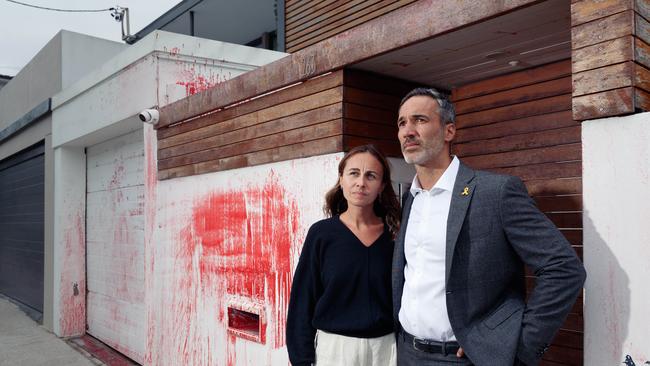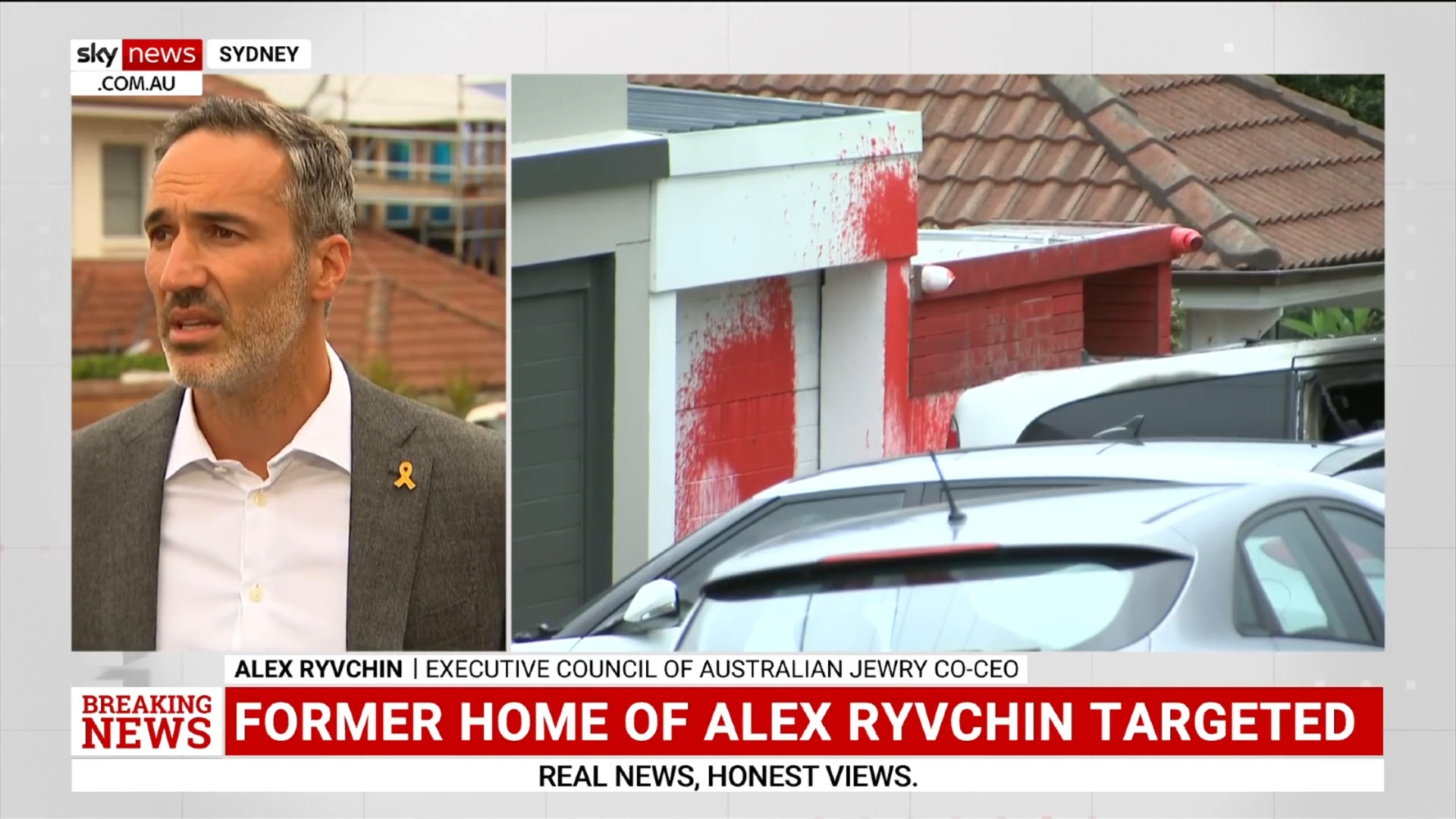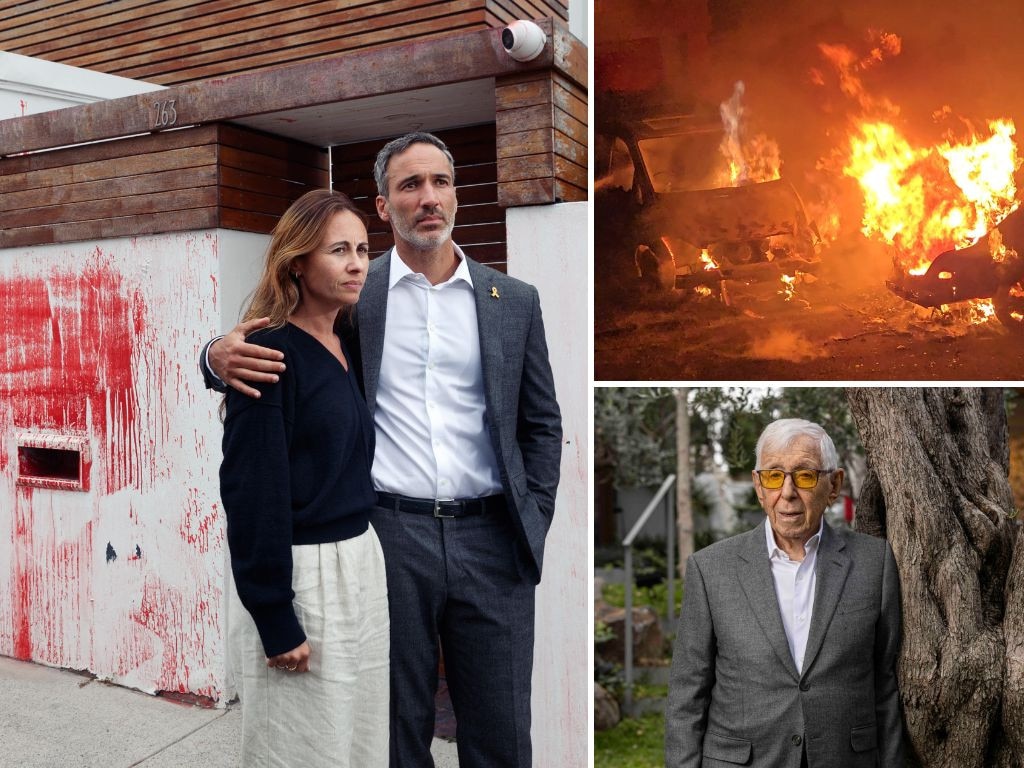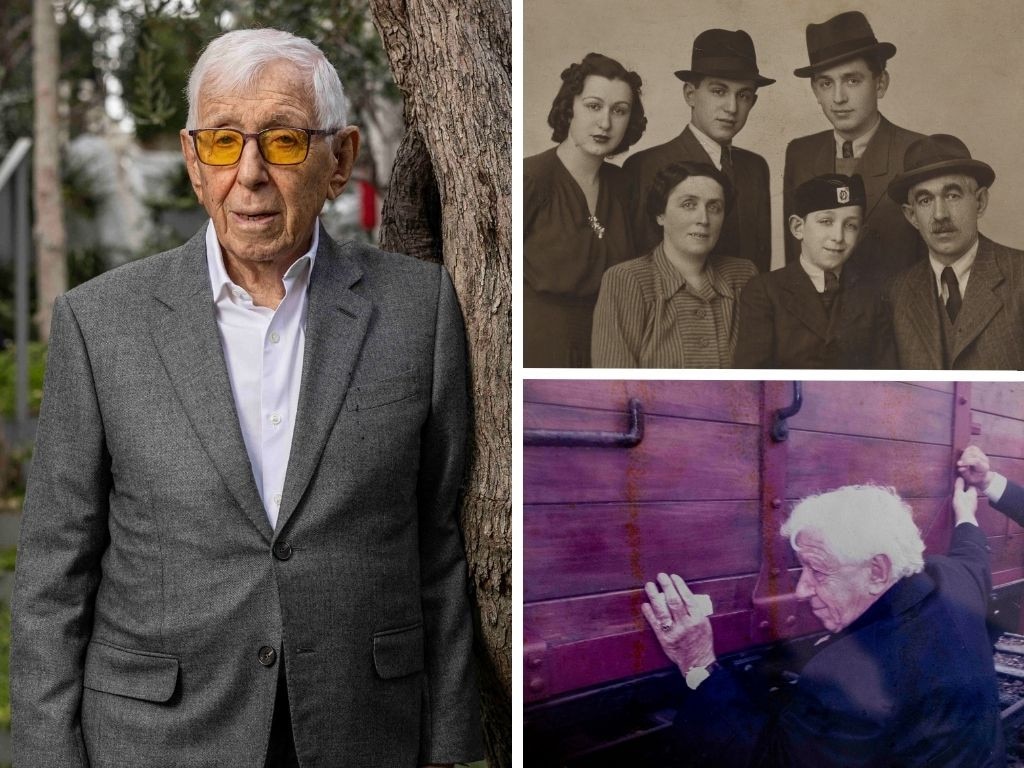Auschwitz fear is on Australian streets – it’s the same hate

The daubing of my former home with red paint, the setting alight of two cars, and the racist slogans scrawled on another doesn’t come close to the horrors I will see in Auschwitz, but there is a common pathology.
A consumptive hatred fused with the arsonist’s relish. Whoever lights a fire in front of someone’s home, on a residential street, is prepared to watch people burn alive.
The death camp I will visit is a difficult place to take in. It is beyond our poor powers of comprehension to fully grasp what happened there.
The numbers are too great, the statistics too inscrutable. How can we rationalise that humans could employ engineers and architects to construct an industrial facility for human destruction. That we’re capable of turning all our creativity and ingenuity to hunting other humans and devising a way to transport and warehouse them before making them unalive as quickly as possible.

It is in the places I have arranged to see in the days before the commemoration that I hope to find some deeper understanding.
In a tiny village called Jedwabne, after the Germans had captured eastern Poland from the Soviet Union, the Polish residents decided to murder the Jewish ones in the most torturous ways they could conceive. One Jew was beaten to death with a brick. Another had his eyes and tongue plucked out.
Two young mothers were chased into a pond with their babies whereupon the crowd cheered as they flailed and descended into the depths, one by one. Eventually, the rest of the town’s Jews were crammed into a barn and burned alive.
There is nothing to be said and done for the lost souls who would do such things or would risk the lives of sleeping families by igniting a Sydney street. They have – through neglect or conditioning – shed what makes us human.
We can only protect ourselves from them. But we who are not like them have to form a united front. To find our voice in articulating as a nation what we stand for and what we oppose. Each of us has a duty to do that.
The historian Saul Friedlander observed that in Nazi-occupied Europe, “not one social group, not one religious community, not one scholarly institution or professional association declared its solidarity with the Jews”. Individuals did stand up despite enormous personal risk, but not a single institution.
More than 7000 Polish citizens have been recognised as Righteous Among the Nations for saving the hiding and sheltering Jews. They showed courage and selflessness that redeems humanity from the crimes of the many. It should require no great courage to speak out against the hatred of the Jewish people today. To denounce those who wish to burn us once more. Our country is democratic and free. We are a nation of laws. But as we have learned through our pain and sorrow, it is not active collaboration that dooms us, but indifference, apathy and blindness that those who sent us to the flames destroyed not only us, but a part of themselves they can never get back.
Alex Ryvchin is the co-chief executive of the Executive Council of Australian Jewry





Just a day after my former home was nearly set alight by domestic terrorists, I will be bound for Poland to attend a special commemoration marking the 80th anniversary of the liberation of the Auschwitz-Birkenau death camp. The long flight will afford me the opportunity to reflect on what happened, what could have happened had the flames climbed a little higher, and what the nation I love and cherish has become.